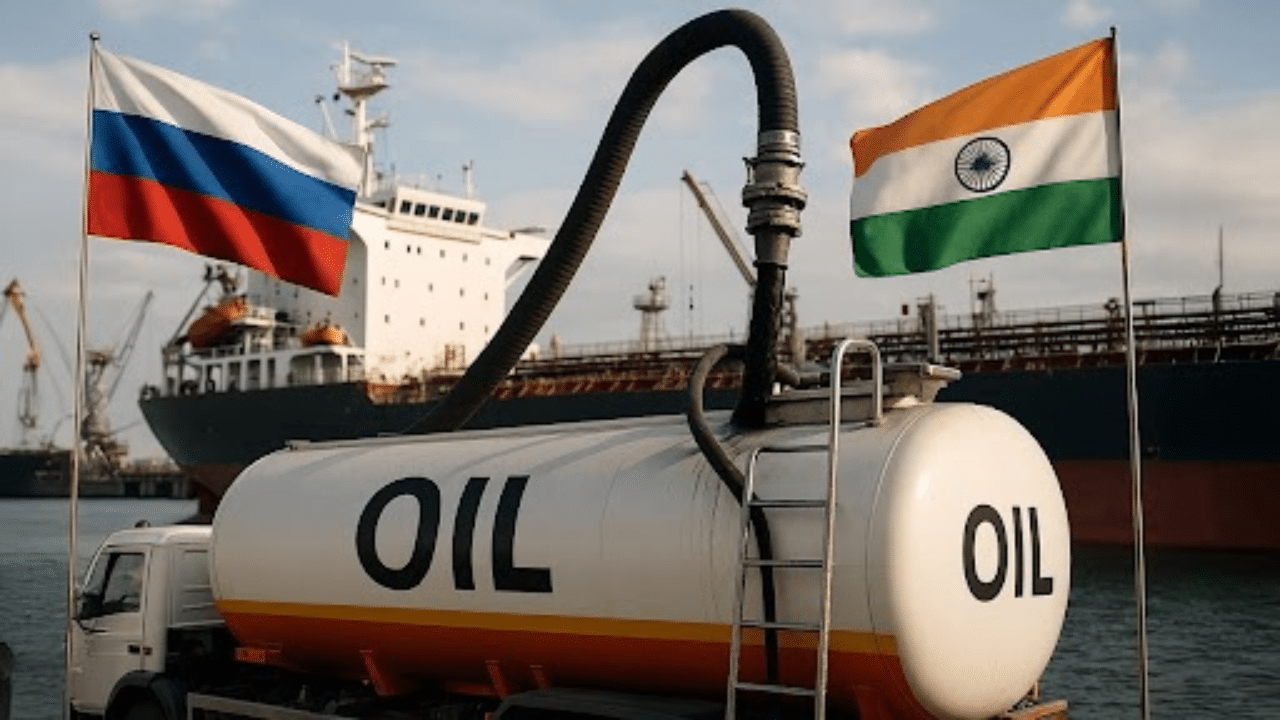EU Sanctions on Russian Oil: Potential Impact on Companies and Sectors

The European Union’s recent sanctions against Russia are poised to significantly impact India’s oil export market, which is valued at $15 billion. The sanctions, part of the EU’s 18th package targeting the oil and energy sectors, extend to refined petroleum products derived from Russian crude oil processed in third countries, including India. This development raises concerns for Indian companies that rely on exporting these products to European markets.
Impact on India’s Oil Exports
The Global Trade Research Initiative (GTRI) has highlighted that India’s petroleum exports to the European Union are at risk due to the new sanctions. GTRI Founder Ajay Srivastava noted that the EU’s restrictions ban imports of refined petroleum made from Russian crude oil processed in third countries like India. This could jeopardize India’s $5 billion worth of petroleum exports to the EU. The think tank’s analysis indicates that while India’s petroleum product exports to the EU were valued at $19.2 billion in FY24, they are projected to decline by 27.1% to $15 billion in 2024-25.
India’s crude oil imports from Russia reached approximately $50.3 billion in FY2025, accounting for over one-third of the country’s total crude expenditure of $143.1 billion. The sanctions also impose a new price cap on Russian oil, reducing it from $60 to $47.6 per barrel, and introduce restrictions on vessels transporting Russian oil. These measures are set to take effect on September 3, further complicating the operational landscape for Indian companies like Nayara Energy and Reliance Industries Limited (RIL).
Challenges for Major Indian Oil Companies
Nayara Energy and Reliance Industries Limited are expected to face significant challenges due to the EU’s sanctions. Nayara Energy may encounter direct operational constraints, while RIL must navigate the complexities arising from restrictions on fuel products derived from Russian oil. Industry analysts suggest that both companies could be excluded from European markets, which would have serious implications for their business operations.
Moreover, these sanctions complicate Rosneft’s reported plans to divest its 49% stake in Nayara. As two of India’s primary fuel exporters, both RIL and Nayara are at the forefront of these developments, which could reshape their market strategies and international partnerships.
Potential Benefits Amidst Challenges
Despite the challenges posed by the EU sanctions, there are potential advantages for India. The new oil price limit may compel Russia to sell its crude oil at lower prices, benefiting India as the second-largest customer of Russian oil. Currently, Russian oil constitutes about 40% of India’s total oil imports. While lower prices could be advantageous, there are concerns regarding future imports due to possible American sanctions.
U.S. President Donald Trump has warned that nations purchasing Russian exports could face penalties if Russia does not achieve peace with Ukraine within a specified timeframe. However, India’s Oil Minister Hardeep Singh Puri has expressed confidence in the country’s ability to manage potential repercussions. He emphasized that India has diversified its sources of oil supply, expanding from 27 countries to approximately 40, thereby reducing dependence on any single source.
Observer Voice is the one stop site for National, International news, Sports, Editor’s Choice, Art/culture contents, Quotes and much more. We also cover historical contents. Historical contents includes World History, Indian History, and what happened today. The website also covers Entertainment across the India and World.

